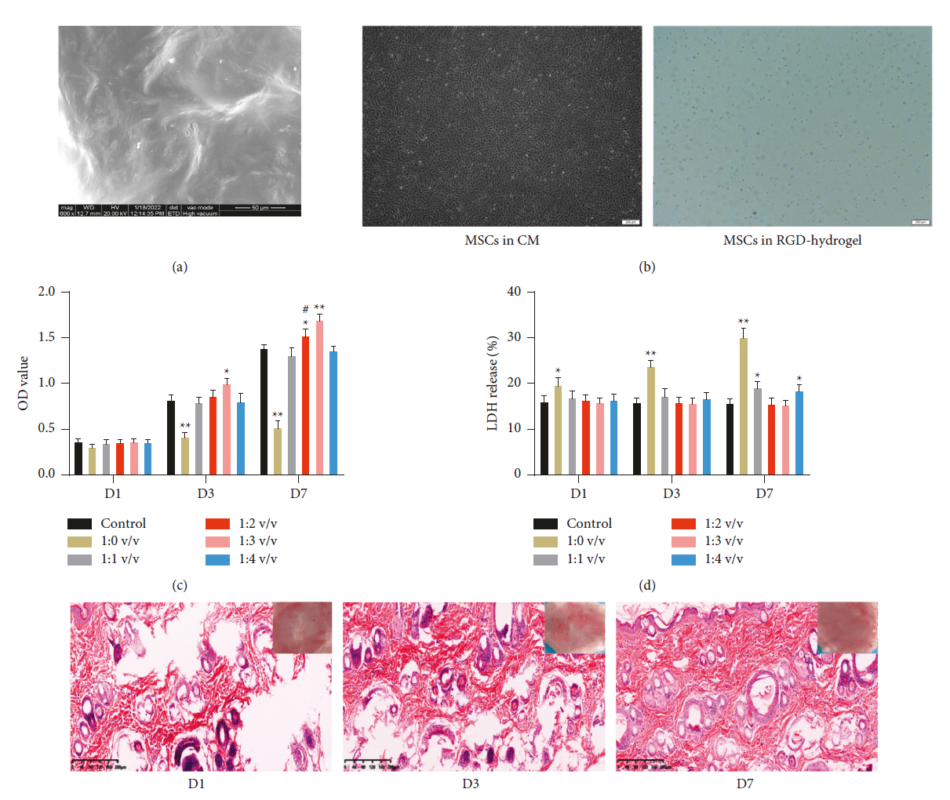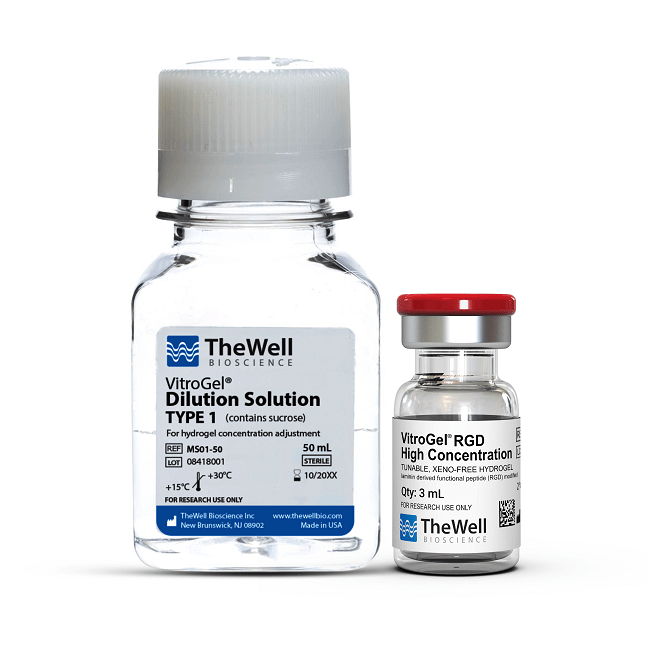Research Highlights
VitroGel® RGD Hydrogel Improves the Therapeutic Effect of Bone Marrow-Derived Mesenchymal Stem Cells on Phosgene-Induced Acute Lung Injury in Rats

TheWell Bioscience VitroGel® RGD and VitroGel® 3D speed up how fast joints can repair themselves
Institutions:
Fudan University, Shanghai, China
Team:
Ding J., Sun Y., He D., Shao Y., Liu F., Zhang L., and Shen, J.
Application:
To aid mesenchymal stem cell culturing and delivery for the healing of lung tissue injury.
Disease Model:
Phosgene-induced lung injury
Hydrogel:
VitroGel® RGD
The aim of this study was to improve the efficacy of therapy with mesenchymal stem cells (MSC) to treat tissue injury. MSCs can be derived from bone marrow and other tissues. This stem cell type has the potential for tissue healing and regrowth if applied correctly and with a viable delivery system. The downside to MSC treatment is that these cells do not possess a long survival time in vitro, they colonize poorly, and they often demonstrate poor differentiation. Thus, it is important to devise a medium and delivery system that can enhance these characteristics for therapeutic purposes. The authors of this study chose phosphene-induced lung injury in rats as a model system to test means to improve MSC healing protocols. Phosgene is a known toxic gas that decomposes rapidly into HCl and CO2 upon contact with water, causing severe tissue damage. TheWell Bioscience’s RGD-hydrogel was selected as a putative enhanced cell delivery vehicle because it can mimic the natural extracellular matrix and provide cell adhesion support.
In this study, a group from Fudan University’s Hospitals tested RGD hydrogel for its efficacy in supporting MSC growth and delivery for lung injuries, an understudied clinical arena. The working hypothesis was that RGD-hydrogel, when combined with MSCs, could enhance the survivability of the cells, and speed up wound healing compared to a delivery system based on traditional 2D cell culture. The authors cultured rat bone marrow-derived MSCs in FBS for three generations. Then they performed experiments to determine the cytotoxicity of VitroGel RGD hydrogel at a variety of concentrations. To do this, they lyophilized VitroGel RDG-hydrogel under vacuum and cut the resulting dry-down into 1 mm thick slices. The samples were coated in gold and examined under a scanning electron microscope to determine their microstructures. Next, the cytotoxicity was examined by mixing VitroGel RGD hydrogel in VitroGel dilution solution at ratios of 1:0, 1:1, 1:2, 1:3, and 1:4 (v/v). These were added to cultured MSCs, and then standard cytotoxicity assays were performed. Lastly, the MSCs were incubated in RGD hydrogel and tested for their ability to heal phosphene-subjected rats with lung injuries and control groups. The results showed that RGD-hydrogel had little cytotoxicity, regardless of dilution factor, and that under these conditions, it was biocompatible and biodegradable in vivo. Moreover, after lung injury treatment, the hydrogel-encapsulated MSCs showed promising efficacy in the alleviation of phosgene-induced acute lung injury by mediating better cell survival in vivo. The authors speculated that RGD-hydrogel augments the secretion of angiopeitin-1, hepatocyte growth factor, epidermal growth factor, vascular endothelial cell growth factor, and interleukin-10 when co-cultured with the MSCs, and that these factors could play an important role in lung tissue healing.
Read the publication:
Related Products:


